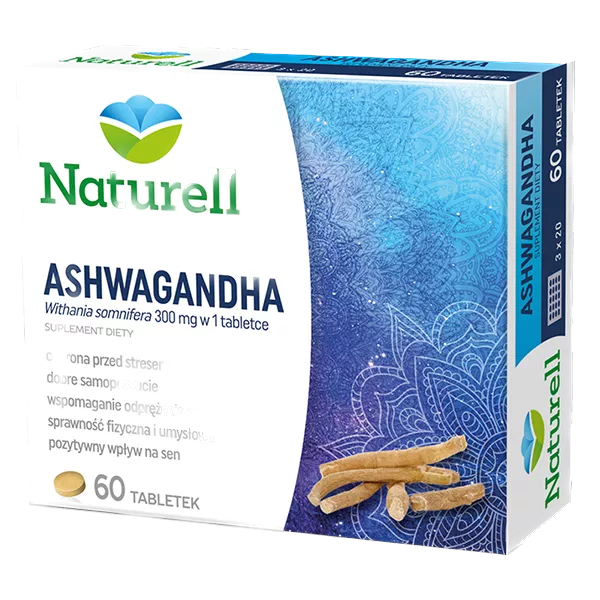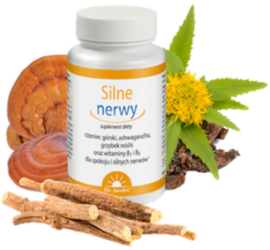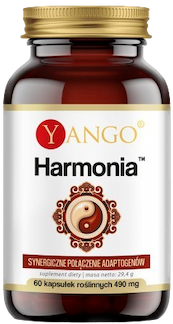How long does ashwagandha take to work? When do you start feeling the effects?
Ashwagandha doesn't work straight away. You have to be patient - but believe me, it's worth it.


Learn more about our editorial process
.

Learn more about our editorial process
.

Learn more about our editorial process
.

Learn more about our editorial process
.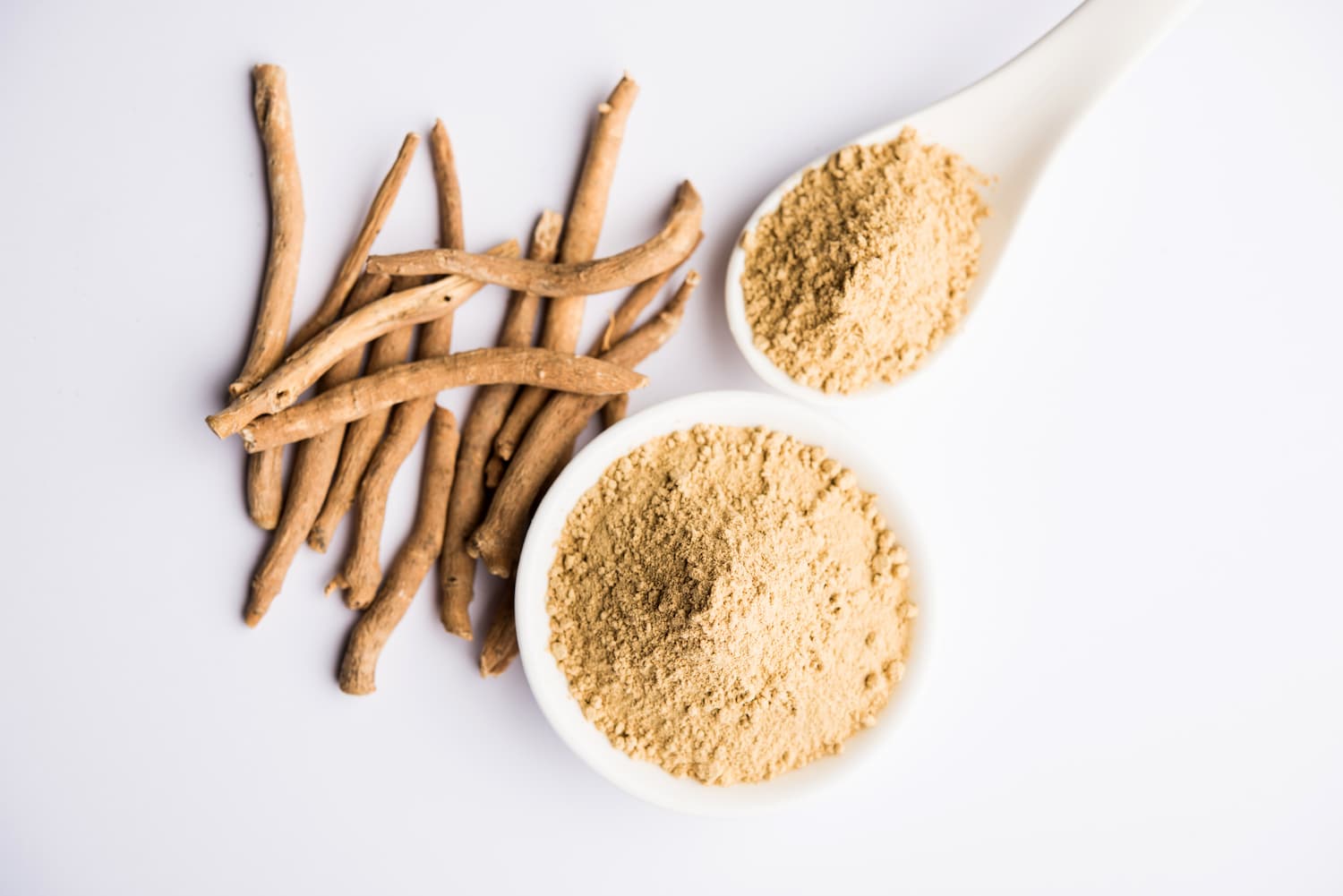
Why you can trust us
Articles on Natu.Care are written based on scientific research, data from government websites and other reliable sources. The texts are written in cooperation with doctors, nutritionists and other health and beauty experts. Articles are reviewed before publication and during significant updates.
.Learn more about our editorial process
.Information about advertisements
Content on Natu.Care may contain links to products from the sale of which we may receive a commission. When creating content, we adhere to high editorial standards and take care to be objective about the products discussed. The presence of affiliate links is not dictated by our partners, and we select the products we review ourselves completely independently.
.Learn more about our terms and Conditions
.You know, you buy a new product and can't wait for the first effects to work. And just as some preparations work immediately (e.g. pre-workouts), you have to wait up to several weeks for others to work.
And what is it like with ashwagandha? Are the online stories about immediate cutting or energy kick right after ingestion true, or an example of a placebo effect? Let me share with you what the scientific research says about this.
From this article you will learn:
- When you will feel the effects of ashwagandha.
- How to use ashwagandha to make it work.
- Why you should use ashwagandha.
- Why you should use ashwagandha.
See also:
- Ashwagandha
- Ashwagandha SFD
- Ashwagandha Naturell
- Solgar's Ashwagandha
- Ashwagandha Swanson
- Ashwagandha Aliness
- Ashwagandha - dosage
- Indian ginseng
- Adaptogens
When does ashwagandha start to work?
Ashwagandha begins to take effect after approximately4-12 weeks of daily consumption of 250 mg to 800 mg. Regular intake of ashwagandha after just4 weeks can reduce stress and tension, improve sleep quality, and boost energyand.
Vitanolides, the bioactive compounds responsible for ashwagandha's valuable properties need time to build up in the body and take effectand.
Vitanolides are compounds found in plants that exhibit interesting biological activity. They may have anticancer, antimicrobial, antiseptic and neuroprotective effects.

Alexandra Cudna Clinical nutritionist
Does ashwagandha stimulate immediately?
No, ashwagandha does not stimulate immediately because it is not a stimulant like, for example, caffeineand. Stories about swallowing a tablet that "instantly stimulated" - or conversely, "instantly induced drowsiness" - are good examples of how one can be susceptible to suggestion.
Reading statements on the Internet, I get the impression that some people have been given the placebo effect from just holding the packet in their hands. Rest assured - ashwa will neither give you a kick nor give you a bang.
Check out the following.
This adaptogen can energise over time by reducing stress, improving sleep quality and reducing feelings of fatigueand. When you're sleepy, you're better able to cope with mental tension and you tense your muscles less - it's natural that you'll have more energy.
You won't feel it as a 'kick', but you'll have more desire to workout after work, take a friend out for a walk or run up to the tram so it doesn't run away from you.
How to take ashwagandha to make it work?
One tip: daily. Only systematic intake of ashwagandha will benefit your health and well-being. Once you decide to embark on an adventure with adaptogens such as ashwa, you must remember to be regular.
Set up a daily ritual for yourself, such as ashwagandha after breakfast or before bed. It doesn't matter whether you take ashwagandha in the morning or at night - adjust the time of day to suit your preferences.
Take ashwagandha in the morning or at night.
After 8-12 weeks, take a break. Why? Because there is no data on its chronic intake. Thanks to the work of researchers, we know that it is considered "probably safe" when taken daily for 3 monthsand.
How ... not to take ashwagandha?
If you want to throw money down the drain, not feel the effects and complain on the internet that it #doesn't work take ashwagandha irregularly and drink alcohol. Taking it every few days is pointless - you need to take it on a regular basis so it has time to settle into your body and work.
Regular consumption of alcohol reduces the absorption of nutrients and other compounds. It weakens immunity and increases the risk of many diseases. The worst choice is to drink alcohol close to the time of taking this adaptogen. Ashwagandha can negatively affect the liver and exacerbate the effects of alcohol.
Ideally, along with consuming ashwagandha you should implement some healthy ayurvedic principles into your life: sleep hygiene, relaxation, healthy eating and exercise.
Is ashwagandha addictive?
No, ashwagandha is not addictive and is safe for use in the daily portions recommended by the manufacturer (max 1000 mg for tablet extract and 3 g for root powder). This adaptogen contains no active ingredients that would cause physical or psychological dependence.
What does ashwagandha help with?
Ashwagandha (also known as Indian ginseng, sluggish vitania or sleeping sickness) is an adaptogen with many health benefitsand.
- Reduces tension, anxiety and stress. Ashwagandha relieves the negative effects of stress, has an anti-anxiety effect and lowers the 'stress hormone' cortisol .
- Promotes mood. Improves mood and increases motivation for action .
- Improves sleep quality. Helps you fall asleep and prolongs sleep .
- Reduces fatigue. Regular use of Indian ginseng reduces feelings of fatigueand.
- Improves libido. Supports men's sexual health and treats sexual dysfunction in women .
- Improves fertility. Increases sperm motility and improves semen quality .
- Influences hormones. May raise testosterone levels in infertile men and increase thyroid hormones.
- Reduces cholesterol concentrations. Ashwagandha lowers concentrations of so-called bad LDL cholesteroland.
- Reduces pain. Reduces pain sensation during chemotherapy and in osteoarthritis .
- Improves immunity. Stimulates immune system function .
- Promotes fitness. Increases performance in endurance athletes and promotes recovery after training .
See also
Ashwagandha Naturell
Product description
Extract from ashwagandha leaves and root will boost energy, overcome fatigue, improve memory and concentration. The product is recommended during periods of increased physical tension or intense physical activity.
Pros and cons
Extract from ashwagandha leaves and root will boost energy, overcome fatigue, improve memory and concentration. The product is recommended during periods of increased physical tension or intense physical activity.
Additional information
Extract from ashwagandha leaves and root will boost energy, overcome fatigue, improve memory and concentration. The product is recommended during periods of increased physical tension or intense physical activity.
Dr. Jacob's Strong Nerves
Product description
Dr. Jacob's Strong Nerves is a dietary supplement thatóry supports the nervous system and helps the body to cope with stress. Thanks to the synergistic combination of beneficial ingredientsós, Strong Nerves relieves anxiety symptoms, increases mental and physical stamina, and supports concentration.
The benefits of this supplement are particularly important for peopleóly exposed to chronic stress, those with sleep problems or employeesóly. It is worth mentioning that the supplement can also help to improve mental well-being and support the immune system.
.All this makes Dr. Jacob's Strong Nerves an excellent remedy for anyone looking for comprehensive support for their nervous system and overall mental performance.
Pros and cons
Dr. Jacob's Strong Nerves is a dietary supplement thatóry supports the nervous system and helps the body to cope with stress. Thanks to the synergistic combination of beneficial ingredientsós, Strong Nerves relieves anxiety symptoms, increases mental and physical stamina, and supports concentration.
The benefits of this supplement are particularly important for peopleóly exposed to chronic stress, those with sleep problems or employeesóly. It is worth mentioning that the supplement can also help to improve mental well-being and support the immune system.
.All this makes Dr. Jacob's Strong Nerves an excellent remedy for anyone looking for comprehensive support for their nervous system and overall mental performance.
Additional information
Dr. Jacob's Strong Nerves is a dietary supplement thatóry supports the nervous system and helps the body to cope with stress. Thanks to the synergistic combination of beneficial ingredientsós, Strong Nerves relieves anxiety symptoms, increases mental and physical stamina, and supports concentration.
The benefits of this supplement are particularly important for peopleóly exposed to chronic stress, those with sleep problems or employeesóly. It is worth mentioning that the supplement can also help to improve mental well-being and support the immune system.
.All this makes Dr. Jacob's Strong Nerves an excellent remedy for anyone looking for comprehensive support for their nervous system and overall mental performance.
Solve Labs Brain Tech Memory & Focus, adaptogens, capsules

- Composition: bacopa monieri, gotu kola, rhoiola rosea, ginseng, zinc gluconate, choline, vitamin B6
- Form: capsules .
- Packaging: 30 or 60 capsules .
- Dose: 2 capsules daily .
- Sufficient for: 10 or 20 days .
Product description
Adaptogens, vitamins and minerals to support the mózg and nervous system. Brain Tech has been developed for people needing long-lasting concentration, improved learning ability, memory and increased resistance to stress.
Pros and cons
Adaptogens, vitamins and minerals to support the mózg and nervous system. Brain Tech has been developed for people needing long-lasting concentration, improved learning ability, memory and increased resistance to stress.
Additional information
Adaptogens, vitamins and minerals to support the mózg and nervous system. Brain Tech has been developed for people needing long-lasting concentration, improved learning ability, memory and increased resistance to stress.
Adaptogens, vitamins and minerals to support the mózg and nervous system. Brain Tech has been developed for people needing long-lasting concentration, improved learning ability, memory and increased resistance to stress.
YANGO, Harmony, adaptogens, capsules
Product description
This dietary supplement contains a synergistic combination of 5 plant extracts that positively influence the body's homeostasis and well-being. The product is recommended for people living under stress, tension and those who are physically active.
Pros and cons
This dietary supplement contains a synergistic combination of 5 plant extracts that positively influence the body's homeostasis and well-being. The product is recommended for people living under stress, tension and those who are physically active.
Additional information
This dietary supplement contains a synergistic combination of 5 plant extracts that positively influence the body's homeostasis and well-being. The product is recommended for people living under stress, tension and those who are physically active.
Product tiles contain affiliate links
Summary
In summary
- Ashwagandha begins to take effect after about 4-8 weeks of daily supplementation with 250-800 mg of this plant in capsules, tablets or other form.
- Systematics and patience are key if one is to experience its positive health and mind-blowing properties.
- Intermittent intake of ashwagandha and drinking alcohol reduce its effects.
- Ashwagandha supports mental health and has a positive effect on many systems in the body.
As an Amazon Partner, I earn from qualifying purchases
FAQ
Ashwagandha - when to take?
When is the best time to take ashwagandha is for you to decide for yourself and adjust your intake according to your preferences. It does not matter at what time of day you take ashwagandha. This plant does not have an ad-hoc effect and does not stimulate or cause drowsiness after consumption.
Does ashwagandha help with sleep?
Yes, ashwagandha (Indian ginseng) may help with sleep by lowering cortisol (the so-called stress hormone) and reducing the negative effects of stress experienced on a daily basis. To improve sleep quality, 400-600 mg of the extract is recommended for a minimum of eight weeks.
How many mg of ashwagandha to use daily?
Typically, manufacturers recommend taking 250-800 mg of ashwagandha daily to experience the positive effects. It is crucial to take systematically for 4-12 weeks to fully benefit from its beneficial properties. Before taking, check the recommended ashwagandha dosage on the packaging.
Is ashwagandha safe during pregnancy?
No, ashwagandha should not be used during pregnancy or while breastfeeding. The effects of ashwagandha on the foetus and the developing infant are unknown, so consumption of this plant is better postponed until after you have completed lactation.
From how old can ashwagandha be used?
Adaptogens, which include ashwagandha, are not recommended for use by people under the age of 18. Their effects on the young, developing body are unknown.
Does ashwagandha work?
Yes, according to scientific studies, ashwagandha works and has a positive effect on physical and mental health. Its regular consumption increases resistance to stress, reduces anxiety and restlessness, and improves sleep. Ashwagandha improves motivation, adds energy and enhances sports performance. It is recommended during times of increased nervous tension and fast-paced life.
Ashwagandha when to take - morning or evening?
Ashwagandha can be taken both in the morning and in the evening - the time of day does not matter as it does not have an immediate effect. You have to wait 4-8 weeks for the effects to take effect. It does not cause drowsiness and does not stimulate when taken.
Sources
See all
Ahmad, M. K., Mahdi, A. A., Shukla, K. K., Islam, N., Rajender, S., Madhukar, D., Shankhwar, S. N., & Ahmad, S. (2010). Withania somnifera improves semen quality by regulating reproductive hormone levels and oxidative stress in seminal plasma of infertile males. Fertility and Sterility, 94(3), 989-996. https://doi.org/10.1016/j.fertnstert.2009.04.046
Ahmed, W., Mofed, D., Zekri, A.-R., El-Sayed, N., Rahouma, M., & Sabet, S. (2018). Antioxidant activity and apoptotic induction as mechanisms of action of Withania somnifera (Ashwagandha) against a hepatocellular carcinoma cell line. The Journal of International Medical Research, 46(4), 1358-1369. https://doi.org/10.1177/0300060517752022
Björnsson, H. K., Björnsson, E. S., Avula, B., Khan, I. A., Jonasson, J. G., Ghabril, M., Hayashi, P. H., & Navarro, V. (2020). Ashwagandha-induced liver injury: A case series from Iceland and the US Drug-Induced Liver Injury Network. Liver International, 40(4), 825-829. https://doi.org/10.1111/liv.14393
Chandrasekhar, K., Kapoor, J., & Anishetty, S. (2012). A prospective, randomized double-blind, placebo-controlled study of safety and efficacy of a high-concentration full-spectrum extract of ashwagandha root in reducing stress and anxiety in adults. Indian Journal of Psychological Medicine, 34(3), 255-262. https://doi.org/10.4103/0253-7176.106022
Cheah, K. L., Norhayati, M. N., Husniati Yaacob, L., & Abdul Rahman, R. (2021). Effect of Ashwagandha (Withania somnifera) extract on sleep: A systematic review and meta-analysis. PloS One, 16(9), e0257843. https://doi.org/10.1371/journal.pone.0257843
Lopresti, A. L., Smith, S. J., Malvi, H., & Kodgule, R. (2019). An investigation into the stress-relieving and pharmacological actions of an ashwagandha (Withania somnifera) extract: A randomized, double-blind, placebo-controlled study. Medicine, 98(37), e17186. https://doi.org/10.1097/MD.0000000000017186Sharma, A. K., Basu, I., & Singh, S. (2018). Efficacy and Safety of Ashwagandha Root Extract in Subclinical Hypothyroid Patients: A Double-Blind, Randomized Placebo-Controlled Trial. Journal of Alternative and Complementary Medicine (New York, N.Y.), 24(3), 243-248. https://doi.org/10.1089/acm.2017.0183
Srivastava, A. N., Ahmad, R., & Khan, M. A. (2016). Evaluation and Comparison of the In Vitro Cytotoxic Activity of Withania somnifera Methanolic and Ethanolic Extracts against MDA-MB-231 and Vero Cell Lines. Scientia Pharmaceutica, 84(1), Article 1. https://doi.org/10.3797/scipharm.1507-13
Tharakan, A., Shukla, H., Benny, I. R., Tharakan, M., George, L., & Koshy, S. (2021). Immunomodulatory Effect of Withania somnifera (Ashwagandha) Extract-A Randomized, Double-Blind, Placebo Controlled Trial with an Open Label Extension on Healthy Participants. Journal of Clinical Medicine, 10(16), 3644. https://doi.org/10.3390/jcm10163644
Singh, N., Bhalla, M., Jager, P. de, & Gilca, M. (2011). An Overview on Ashwagandha: A Rasayana (Rejuvenator) of Ayurveda. African Journal of Traditional, Complementary and Alternative Medicines, 8(5S), Article 5S. https://doi.org/10.4314/ajtcam.v8i5S.9
Wang, J., Zhang, H., Kaul, A., Li, K., Priyandoko, D., Kaul, S. C., & Wadhwa, R. (2021). Effect of Ashwagandha Withanolides on Muscle Cell Differentiation. Biomolecules, 11(10), 1454. https://doi.org/10.3390/biom11101454Wankhede, S., Langade, D., Joshi, K., Sinha, S. R., & Bhattacharyya, S. (2015). Examining the effect of Withania somnifera supplementation on muscle strength and recovery: A randomised controlled trial. Journal of the International Society of Sports Nutrition, 12(1), 43. https://doi.org/10.1186/s12970-015-0104-9
White, P. T., Subramanian, C., Motiwala, H. F., & Cohen, M. S. (2016). Natural Withanolides in the Treatment of Chronic Diseases. Anti-inflammatory Nutraceuticals and Chronic Diseases, 928, 329-373. https://doi.org/10.1007/978-3-319-41334-1_14
Wei, Z., Li, T., Kuang, H., Su, H., & Wang, Q. (2020). Pharmacological Effects of Withanolides. Biomedical Journal of Scientific & Technical Research, 25(3), 19243-19248. https://doi.org/10.26717/BJSTR.2020.25.004218
Editorials
Meet the team


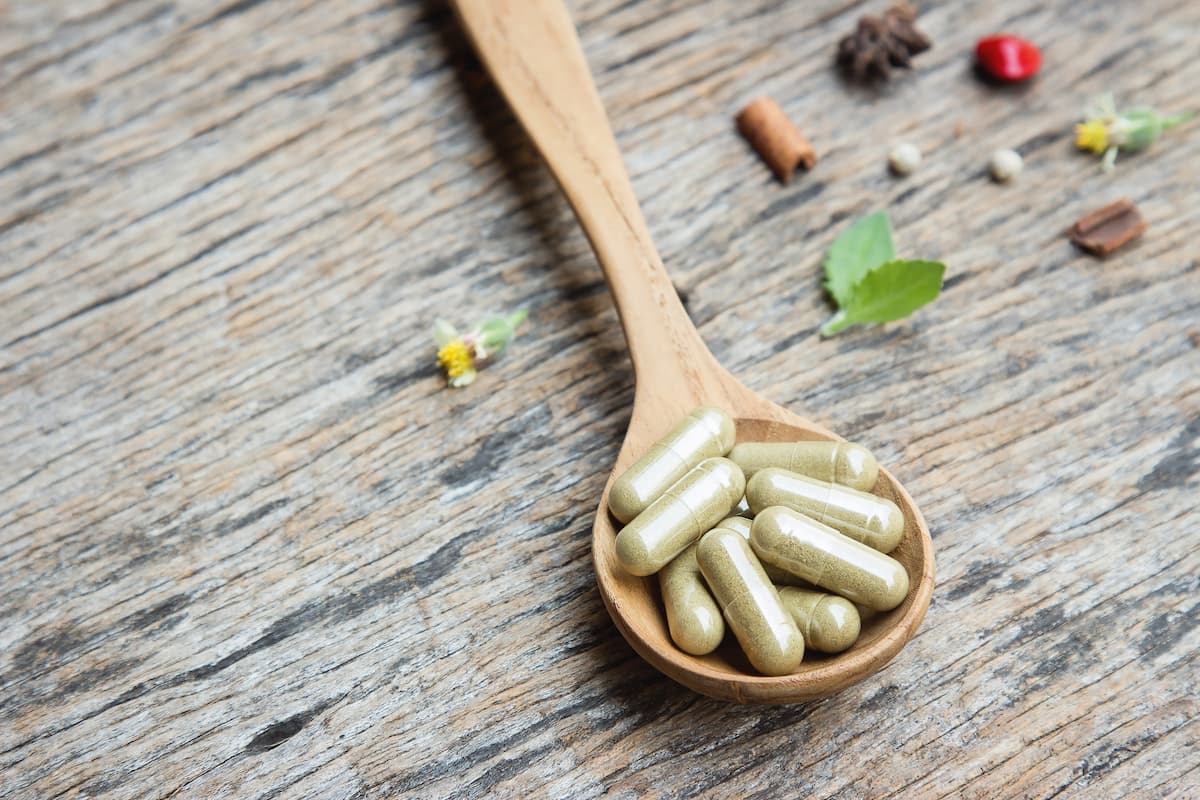
Ashwagandha affects thyroid hormone levels. Find out if you can use it.
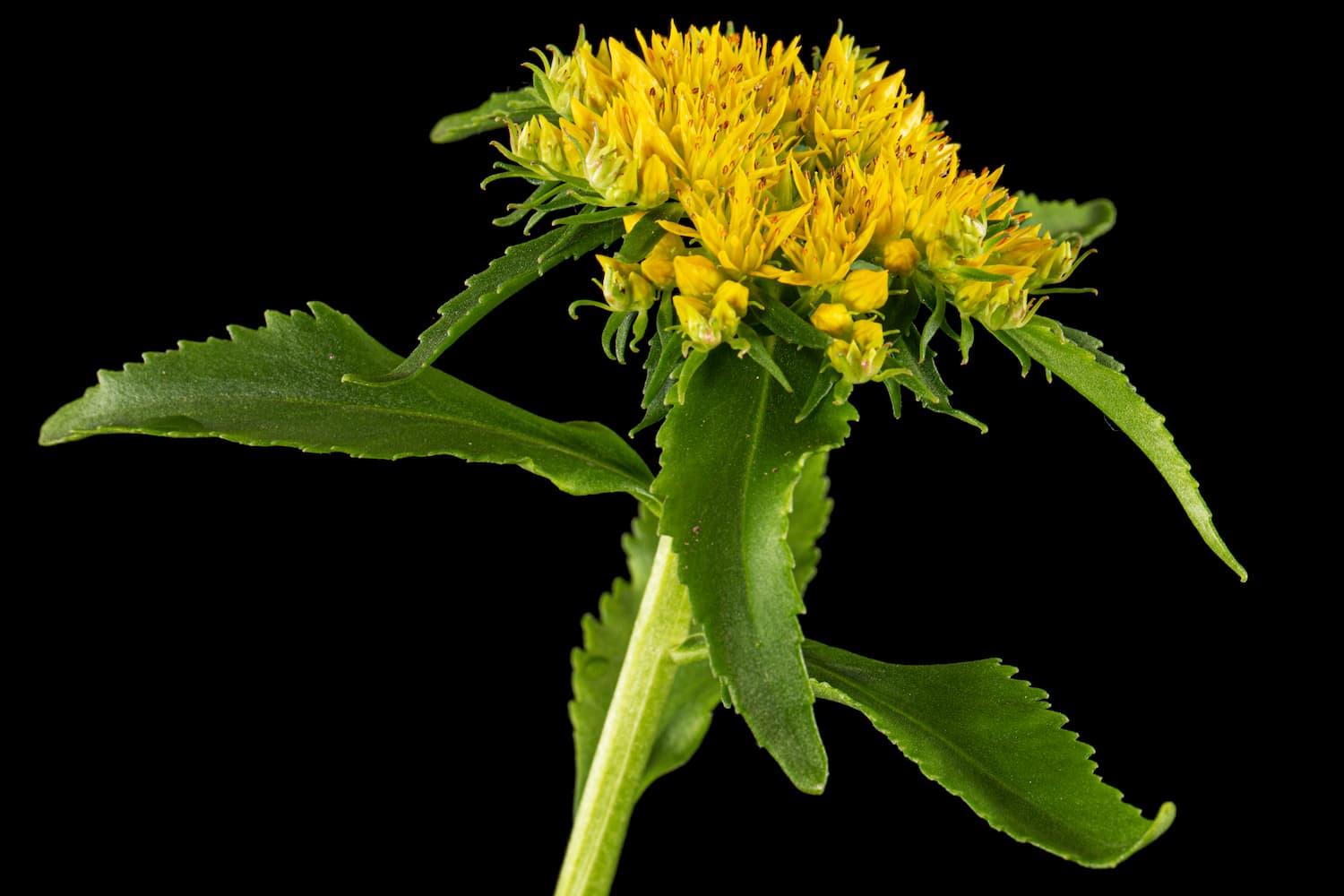
See how mountain pintail can affect your wellbeing.

Check out the opinions of doctors and other professionals about ashwagandha. Also find out what people on the forum think about it.
